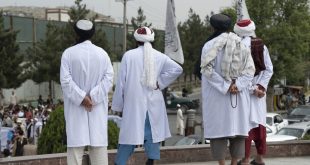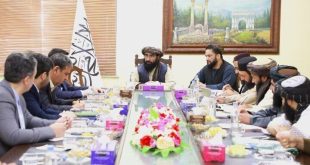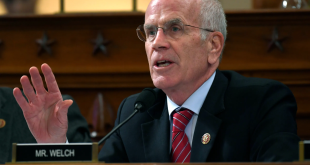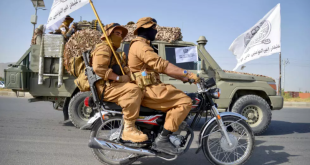Forty years of war and violence have had a profound negative impact on the psyche of the Afghan nation. I can share with certainty that every single Afghan family has lost a loved one to this insidious war. Despite the resilience of the brave people of Afghanistan, this war has had a prolonged traumatizing effect with deep psychological scars and devastating mental health issues on individuals, families and communities. While it is true that this war has been imposed by outsiders on the Afghans, it is also a sad reality that it has been waged within by Afghans against each other under the politics of ethnicity, regionalism and language. Consequently, the noble people of Afghanistan have been robbed from a peaceful life which they deserve. Dr. Khalilzad, the US peace envoy deserves much appreciation and recognition for his hard work and Drs. Ghani and Abdullah, the co-leaders of the Afghan Unity Government should be applauded for their strategic patience and flexibility. Additionally, former President Karzai and other political leaders, women groups, members of the civil society and the youth groups should be applauded for their efforts in promoting peace. In order to move forward, I believe this is a critical moment for every Afghan citizen to accept responsibility, reconcile their differences and move together towards peace with one unifying voice. This is the moment of truth for every Afghan to accept forgiveness as a gift of reconciliation instead of practicing hatred as a weapon of retaliation and destruction.
As the next round of peace discussions between the United States and the Taliban with participation of a broad- based Afghan groups will resume in Doha, Qatar in the near future, there is much hope and anticipation that these discussions will produce some desirable results towards peace. It is important to know that in every negotiation, sometimes there are obstacles that must be overcome. As has been noted by many, the Afghan peace discussions have three dimensions which include the international efforts, regional cooperation and the intra-Afghan dialogue which I think is the most challenging and delicate part of the discussion process.
I would like to share some thoughts regarding the Intra-Afghan dialogue which is very critical for success of these negotiations towards achieving peace in the country. I hope that those individuals who yield power, will think of peace as a Special Gift that transcends personal supremacy, ethnicity, regionalism and political orientation. In essence, achieving peace requires sacrifices by all members of the Afghan society, especially those whose lives have been adversely affected by this protracted cycle of violence and terrorism. The representation of the following Afghan groups in peace discussions can serve as a good catalyst for sharing thoughts, feelings and concrete recommendations during upcoming Doha Conference.
- The High Peace Council under the leadership of Mr. Mohammad Omar Daudzai and other officials who can present their individual views regarding peace.
- Political Parties, the Women Groups, the Civil Society and the Afghan Youths Groups whose diverse views on opportunities and challenges towards achieving peace can be useful. Incorporating their recommendations into a framework that ensures transparency and fairness will be very important.
- Other national personalities who are known by virtue of their good deeds and love of their Afghan nation.
- Some Afghan intellectuals living outside of the country, and who can provide fresh and unbiased views during these negotiations.
Immediate Need for a Ceasefire
As the peace discussions take momentum and some form of agreement on time table for foreign force withdrawal is achieved, and the Taliban guarantee that the Afghan soil and the region will not be used by terror groups against the interest of the United States and the west, there is a need for Six-month Ceasefire to be signed by the parties and supported by the United Nations. This Ceasefire Phase is extremely important for building confidence and generating goodwill between the Afghans and the Taliban. Further, this period will allow time for Dr. Khalilzad to generate firm commitments of the neighboring countries and the international community in support of the Afghan peace process. I believe the following points will highlight the importance of this Ceasefire in the Afghan scene.
- Creating psychological comfort and emotional stability for the population: The cessation of hostilities and reduction in terrorism and violence will have a cathartic psychological impact on general public who have been witnessing traumatic events for a long time. Additionally, these developments will have a positive emotional impact on those with war pain and episodic trauma as a result of the unfortunate events of the past.
- Achieving a National Consensus Towards Peace: As the broad-based Afghan groups continue their dialogue towards achieving a lasting peace, a national consensus can emerge during the Ceasefire. This important document can serve as a Memorandum of Understanding for Peace in the country.
- Attaining Political Agreement: There are some thorny issues that must be discussed; 1. How the Taliban version of Sharia Law will fit into current Afghan Constitution by safeguarding the democratic achievements of the past 18 years while accommodating the demands of the Taliban? 2. Is there a need for a Transitional Period and Who should lead during this period and for how long? 3. When is it feasible to hold the next Presidential Elections in the country?
- Ensuring the Reduction of Violence in the country: At present, the Taliban receive much of the blame for violence in the country. This Ceasefire will provide checks and balances on other insurgent groups who have been responsible for violence in Afghanistan. This will provide a good opportunity for assessing the intention and commitment of the neighboring countries towards Afghan peace endeavors.
- Continuing Political Support for Afghanistan. The United States, NATO and their international counterparts should support the hopes and aspiration of the Afghans for a stable and prosperous Afghanistan. This political support for peace should continue for a reasonable period of time. After winning the cold war with the resilience of the Afghan Jihad in late 80s, the United States abandoned the people of Afghanistan and this region which had become the hub of political activities by Al-Qaeda and other undesirable groups.
- Devising a Five- Year Aid Peace Package for Afghanistan. The United States, NATO and their counterparts have made enormous contributions in the areas of security, infra-structure and nation building. During this transitional period, there is a need for designing a new economic package that would meet the varying needs of the people while navigating Afghanistan towards economic self-sufficiency. Afghanistan has enough wealth in natural resources and considerable potential for exporting fruits and other Afghan products to the neighboring countries. This economic package should be based on concrete measurable outcomes which will ensure gradual progress towards self-sufficiency.
- Assisting the Leadership of Afghanistan towards Effective Governance. Despite considerable progress, Afghanistan is still facing systemic governance issues related to the Rule of Law, Transparency, Accountability, Public Participation, Effective Leadership and Equity and Inclusion. The international community can provide the necessary technical assistance to help Afghanistan become structurally sound and financially viable.
- Curbing Corruption. Grand corruption has taken hostage the soul of the Afghan nation. It is time for the United States and NATO to open their blind eyes to this endemic problem. I believe both the United States and NATO know these corrupt personalities and have the necessary information about their assets in different banks. The international community must take a bold step in freezing their assets and exposing their identities. Endemic corruption is serving as the source of all evils and a great obstacle to peace. Unless we clean this mess, peace will not be achieved in Afghanistan. My country, the United States must assert its moral leadership in eradicating this cancer from the veins of the Afghan heart. Afterall, we owe this to the next young generations of the Afghan leaders.
Matin Royeen, Ph.D. is an Afghan American educator. He is living in Chicago, Illinois.
He can be reached at: [email protected]
 Afghanistan Times
Afghanistan Times




